
Genres: Fantasy, Contemporary or Urban Fantasy, Queer Protagonists
Representation: Bisexual Black MC, lesbian secondary character, F/F
Published on: 9th August 2022
ISBN: 0063117029
Goodreads

Reminiscent of the works of Margaret Atwood, Shirley Jackson, and Octavia Butler, a biting social commentary from the acclaimed author of Lakewood that speaks to our times--a piercing dystopian novel about the unbreakable bond between a young woman and her mysterious mother, set in a world in which witches are real and single women are closely monitored.
Josephine Thomas has heard every conceivable theory about her mother's disappearance. That she was kidnapped. Murdered. That she took on a new identity to start a new family. That she was a witch. This is the most worrying charge because in a world where witches are real, peculiar behavior raises suspicions and a woman--especially a Black woman--can find herself on trial for witchcraft.
But fourteen years have passed since her mother's disappearance, and now Jo is finally ready to let go of the past. Yet her future is in doubt. The State mandates that all women marry by the age of 30--or enroll in a registry that allows them to be monitored, effectively forfeiting their autonomy. At 28, Jo is ambivalent about marriage. With her ability to control her life on the line, she feels as if she has her never understood her mother more. When she's offered the opportunity to honor one last request from her mother's will, Jo leaves her regular life to feel connected to her one last time.
In this powerful and timely novel, Megan Giddings explores the limits women face--and the powers they have to transgress and transcend them.
I received this book for free from the publisher via NetGalley in exchange for an honest review. This does not affect my opinion of the book or the content of my review.
Highlights
~one of the best takes on magic I have ever seen
~these spirits slap
~what if it was the law for women to marry by 30?
~absolutely ALL the Feels
~The Handmaid’s Tale < THIS BOOK
Writing this review is going to be difficult for a number of reasons – I have a lot of Feels that are going to be hard to put into words; The Women Could Fly deals with a number of difficult themes that deserve to be commented upon thoughtfully; and of course, it’s a book about a Black queer woman experiencing that combination of racism and misogyny and queerphobia that I, the whitest of white snowflakes, have only an academic understanding of.
But also, I have almost no notes for this review. Because after the first chapter, I couldn’t put the book down long enough to write any!
That should give you an immediate idea of how compulsively readable The Women Could Fly is.
Jo lives in a USA where witches exist, and to be convicted of witchcraft often still means being burnt at the stake. Witches are evil; witches are powerful; and witches are women. Witches are especially often BIPOC women, because the ‘baser natures’ of non-whites makes them more susceptible to the call of the Devil. Or something.
(I don’t say ‘or something’ with the implication that Giddings hasn’t done her worldbuilding; I mean that it’s the kind of crap that racists and misogynists always spout, the kind of thing that is full of holes and falls apart the moment you apply critical thinking to it. It’s baseless and awful and rage-inducing, and hi, no, this book is not going to be good for your blood pressure.)
This is a USA in which sex ed consists of young men being told it’s their holy duty to keep the women in their lives away from the path of evil, and where young women are encouraged to spy on each other, to keep a watchful eye out for any signs that one of their peers might be a witch. It’s a USA in which women must be married by 30 to retain any form of independence – which, of course, isn’t real independence, because it all hinges on a (cishet) man who could take it away from you in an instant. And if you’re not married by the big three-oh, the government very much wants to know why, and you will be registered, and it just gets uglier from there.
Jo is 28, the point at which unmarried women have to start doing quarterly check-ins with the Bureau of Witchcraft. Coworkers are starting to give her weird looks; her family keeps dropping heavy-handed hints. Sure, she has Preston, but that’s really more a friends-with-benefits relationship – and anyway, how the hell is she supposed to love anybody enough to marry them when she has to? Doesn’t that kind of pressure make it impossible? If you need to marry someone to retain your basic human rights, how can you tell if you love them at all – or if you’re just giving in because you need them? How can you love someone you need that badly, for those reasons? And even if you do – how can that love not turn into seriously toxic resentment?
Jo is struggling with all of this when the most up-to-date version of her missing – presumed dead – mother’s will is finally found. It turns out that she left Jo a lot of money. But to claim it, Jo needs to visit a small island in Lake Superior on a specific date – and if she misses it, she’ll have to wait seven years for another chance.
Also, she needs to take a specific old doll with her when she goes.
It’s extremely weird, but Jo’s mom was known for being ‘different’ – which here just means, having her own interests and being passionate and outspoken about them. Being her own person within herself, rather than defining herself in relation to her husband and daughter.
But all of that made it very easy, when she then disappeared, for people to accuse her of being a witch. As her daughter (and, let’s be real, as a Black girl) kid!Jo was dragged into the Bureau and interrogated for days with questions that would be hilarious if they weren’t so sickening: did your mother eat babies, did she make you eat a baby, did she lead you to make a pact with the Devil? It’s kind of ironic – Jo’s mom thought witches were a hoax, that the whole system was just set up to control women – but reading the scenes were Jo remembers those days of interrogation was viscerally horrifying.
And then there’s the island.
But we can’t talk about the island. You’re going to have to read the book yourself, to learn about the island.
The Women Could Fly was an interesting book in so many ways for me, but the most immediately obvious one was: this doesn’t read like a fantasy novel. It has witches and witchcraft, sure, and it’s set in a lookalike of our modern world, but there’s no way you could shelve it under Urban Fantasy. It reads like literary fiction – when I requested it on Netgalley, it was categorised as General Fiction (Adult) and Multicultural Interest, not Sci Fi & Fantasy like the rest of my reads. And I admit, I was worried about that – I’m a SFF not-girl all the way; General Fiction is not my wheelhouse.
But this would not have worked – not as well, not in the ways that it did, not nearly so powerfully – had it been written like a SFF novel. The Women Could Fly needed to be General Fiction, and folx, I have never said that before and do not expect to ever say it again. I am not nearly well-versed enough in general/literary fiction to be able to put this into words, to explain it in technical terms, but the gen-fic style was exactly what this story needed, and the execution is – pun fully intended – magical.
I LOVED this book. Loved it. Loved it loved it LOVED IT. It’s clever and incisive and demands answers, it’s frank and open and surprising, it is inherently curious and angry and passionate, gods is it passionate. The Women Could Fly is one of those books that makes you FEEL things – so much frustration and outright rage on behalf of the protagonist and people like her; delight and awe and wonder at what her mother’s will leads her to. I can understand the comparisons to The Handmaid’s Tale, but personally, I think that’s unfair – to Handmaid, because it can’t possibly measure up. The Women Could Fly is in a league of its own, objectively better than Handmaid in every way. #sorrynotsorry. It’s more relevant to a modern reader, more up-to-date on the ongoing conversations about race and sex, privilege and prejudice; it’s more intersectional; and it has a LOT more witches.
And it’s queer as fuck, which is always better than not.
Let’s put it this way: The Women Could Fly is to the 2020s what The Handmaid’s Tale was to the 80s.
I can already predict that this book will not be everyone’s cup of tea. Some people are going to accuse it of being too social-justice-y. To which I say: fuck off. I’m not going to pretend I know what being Black is like, but Jo’s feelings and experiences on being a woman (or perceived as one, in my case) and queer? Are absolutely on-point. This book does not preach and it does not whine; it’s just honest about what it’s like to live in a society that still won’t accept those things as normal, that is still suspicious of them. The confusion, the contradictions, the anger, the fear, the worry, the joy: all of it is just…true.
That’s why it hits so hard.
And lest Giddings be accused of conflating sex and gender in the case of witches are women; no, my friends. No. Pretty much the first thing The Women Could Fly does is ask why witchcraft is tied to cis women; to point out that gender is a spectrum and, in Jo’s world, witchcraft is used as a stick with which to beat queer cis men and nonbinary people too. Witchcraft is tied to cis womanhood only because The Man refuses to acknowledge that the rest of us even exist, but woe betide us if we do come to his attention. Many states in Jo’s America have laws that tie gay men to witchcraft too…even while insisting that only women can do magic.
It’s the kind of nonsense that we’re all used to hearing from the fundamentalist Right, are we not?
I don’t know if Giddings intended it, but this aspect of The Women Could Fly reads – to me, at least – as a much-needed critique of real-world witchcraft, which to this day still puts cis women on a plinth in way too many spaces that, coincidentally I’m sure, have no room for nonbinary folx. (Wicca, I am looking at you.) Making it clear that magic does not belong solely to cis women is majorly important to me, and I’m massively grateful that Giddings made it extra-clear that anyone who wants to be a witch can – although I’ll grant you, with the Bureau of Witchcraft to deal with, you’d have to want it very badly.
Speaking of: I absolutely adored the magic in this book, the way Giddings conceived of it and the way in which it works. I love that magic is fundamentally tied to community, that it needs to be worked collectively rather than by the individual. Honestly, I’d really love to write an essay about all the ways in which that single fact – magic means people working together – can be interpreted; the meaning in it, the symbolism, the metaphor of it. Working together, we can change worlds: YES! Hells yes, that is so much cooler than one single badass sorceress character; that is so much more meaningful, so much more beautiful.
Gah, I have so many FEELS!
But yes: even aside from the communal aspect, the magic Giddings has created is simply perfect. I cannot stand ‘hard’ magic systems, where magic is more like Maths; I want magic that feels magical, strange and breathtaking and gorgeous, weird and wonderful, and Giddings more than delivers. Everything about the witches, witchcraft, and magic sent me into paroxysms of delight, okay?
Okay.
I will reiterate: I loved this book. No: I LOVE this book, present-tense.
And you absolutely, positively, simply MUST read it for yourself.
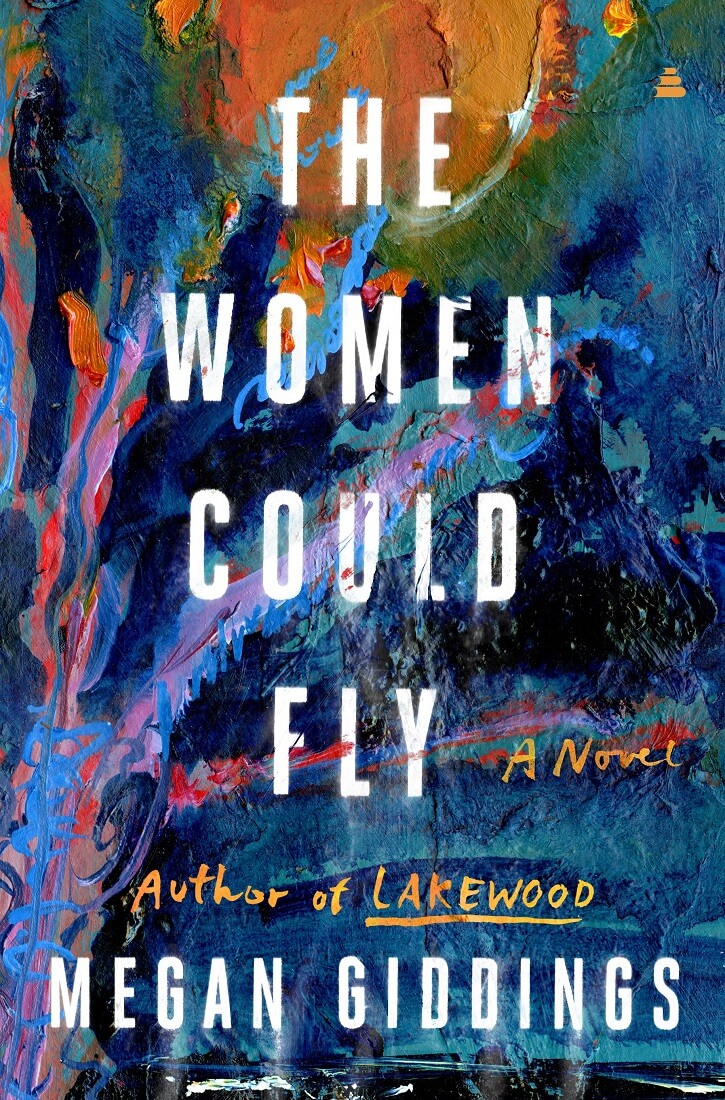
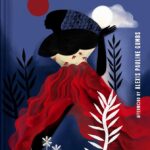
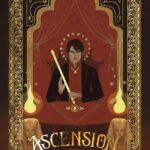

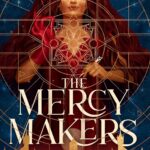
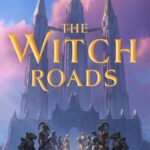
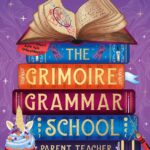
I am absolutely going to read this book because of your awesome post! Thank you for putting it on my radar. 😊
You’re so welcome, I hope you enjoy it!!!